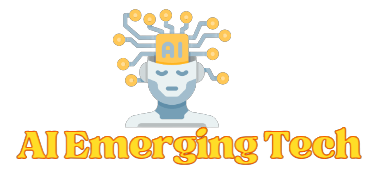Introduction
One of the most transformational and innovative technologies of the modern era is artificial intelligence (AI). Artificial intelligence (AI) is altering industries and revolutionizing how people live, work, and connect thanks to its capacity to imitate human intelligence and learn from data. Artificial intelligence (AI) is playing a critical role in boosting productivity, efficiency, and creativity across numerous sectors, from automated processes to intelligent decision-making systems. In-depth analysis of AI's wide-ranging effects is provided in this article, along with an examination of how it is changing many industries and possible social repercussions.
I. Understanding Artificial Intelligence
Fundamentally, artificial intelligence (AI) is the simulation of human intellect in computer systems that can process, analyze, and understand data in order to carry out tasks that ordinarily demand for human intelligence. From natural language processing and picture identification to intricate problem-solving and decision-making, these jobs cover a wide range of capabilities.
Two basic categories can be used to describe AI: narrow AI and general AI. Narrow AI, also referred to as weak AI, is made to carry out particular jobs expertly and effectively. Contrarily, general AI, also known as strong AI or artificial general intelligence (AGI), is similar to human intellect and has the capacity to comprehend, pick up, and apply knowledge in a variety of contexts.
II. AI Revolutionizing Industries
1. Healthcare: AI is transforming healthcare by analyzing massive amounts of medical data to help with disease diagnosis, the development of novel medicines, and the personalization of patient care. While AI algorithms speed up the drug discovery process, AI-powered medical imaging devices help in more precise cancer diagnosis.
2. Finance: The financial industry is utilizing AI to improve consumer experience, identify fraud, and optimize investment methods. Virtual assistants and chatbots powered by AI are becoming more and more common in customer service, providing prompt answers to inquiries.
3. Manufacturing: AI-driven automation is enhancing quality control and streamlining production processes in the manufacturing sector. Robots with AI capabilities can do complicated jobs with accuracy and consistency, boosting output and lowering human mistake rates.
4. Transportation: With the integration of AI, the transportation sector is undergoing a substantial revolution. Self-driving cars, which promise safer and more effective transportation networks, are at the vanguard of this change.
5. Retail: Through individualized product recommendations, inventory control, and improved pricing techniques, AI is revolutionizing the retail sector. Retailers are better understanding consumer behavior and preferences thanks to AI-driven analytics, which has enhanced customer engagement.
6. Education: AI is changing education by providing individualized instruction and flexible tutoring programs. AI-enabled learning systems may identify a student's strengths and shortcomings and then adjust the educational material to suit those needs.
III. Challenges and Ethical Considerations
Despite its promise for transformation, the rise of AI is not without difficulties and ethical issues. Among the crucial issues are:
1. Job displacement: In some industries, the automation of specific tasks and procedures by AI may result in the loss of jobs, prompting concerns about unemployment and the necessity of upgrading the workforce's skills in order to remain relevant.
2. Fairness and Bias: The data that AI systems are taught on determines how fair and impartial they are. AI systems may reinforce and amplify prejudices if the training data contains them, which could result in unjust decisions in areas like employment and lending practices.
3. Data Security and Privacy: AI's reliance on data collecting and processing creates questions regarding data security and privacy. To preserve trust and safeguard user data, it is essential to make sure AI systems are created with strong data protection mechanisms.
4. responsibility and openness: As AI spreads, it is crucial to establish certain responsibility and guarantee openness in decision-making processes, especially in crucial domains like healthcare and criminal justice.
IV. The Path Forward: Responsible AI Development
Responsible AI development is essential to maximizing AI's promise while minimizing its drawbacks. This entails:
1. Ethical Frameworks: Creating and upholding ethical frameworks that give equality, openness, and accountability a priority in the development and use of AI systems.
2. Implementing techniques to spot and eliminate biases in AI algorithms and data sets to guarantee fair outcomes.
3. Fostering collaboration between researchers, decision-makers, and industry stakeholders to address the societal consequences of AI and develop standards for the appropriate use of the technology.
4. Regulation and Governance: Creating rules and governance frameworks to control the creation and use of AI while balancing innovation and safety.
Conclusion
A critical period in human history has arrived with the emergence of artificial intelligence, which has the power to transform entire industries and alter social standards. As AI permeates more and more industries, it is essential to approach its development ethically, taking into account ethical issues and assuring transparency. We can fully utilize AI's transformational capacity while building a future that benefits humanity as a whole by finding the appropriate balance between innovation and accountability.




.jpg)
Post a Comment